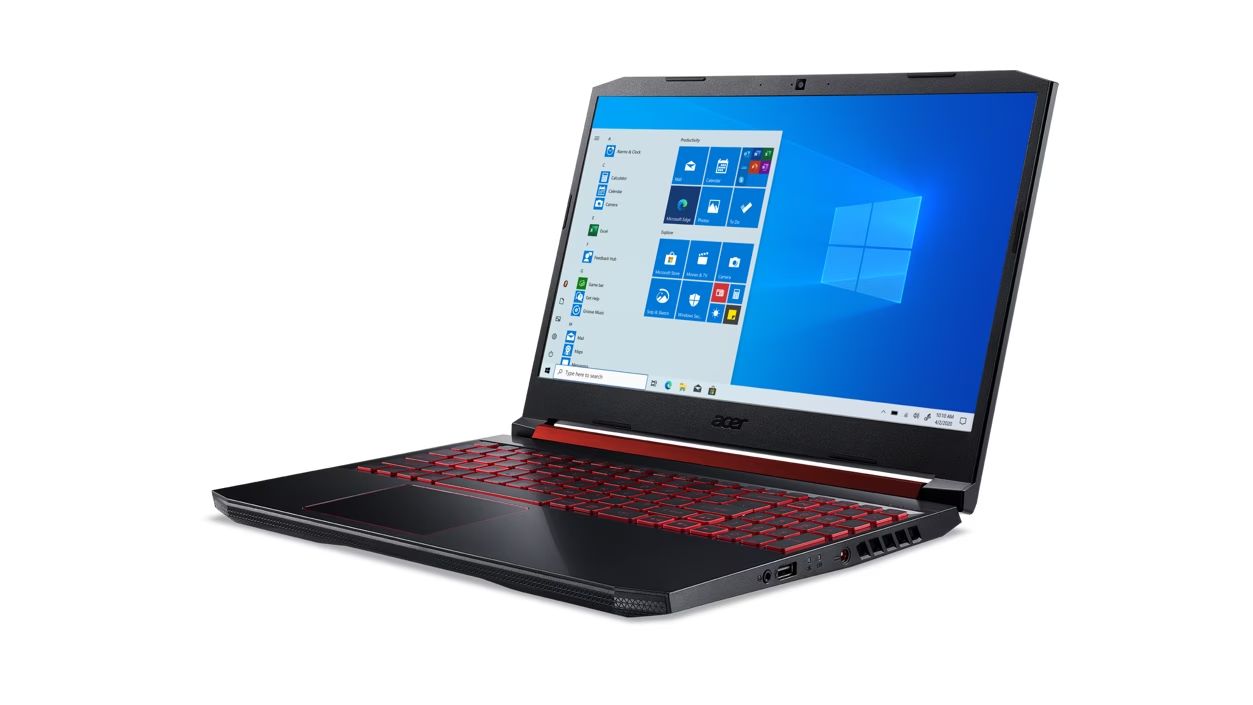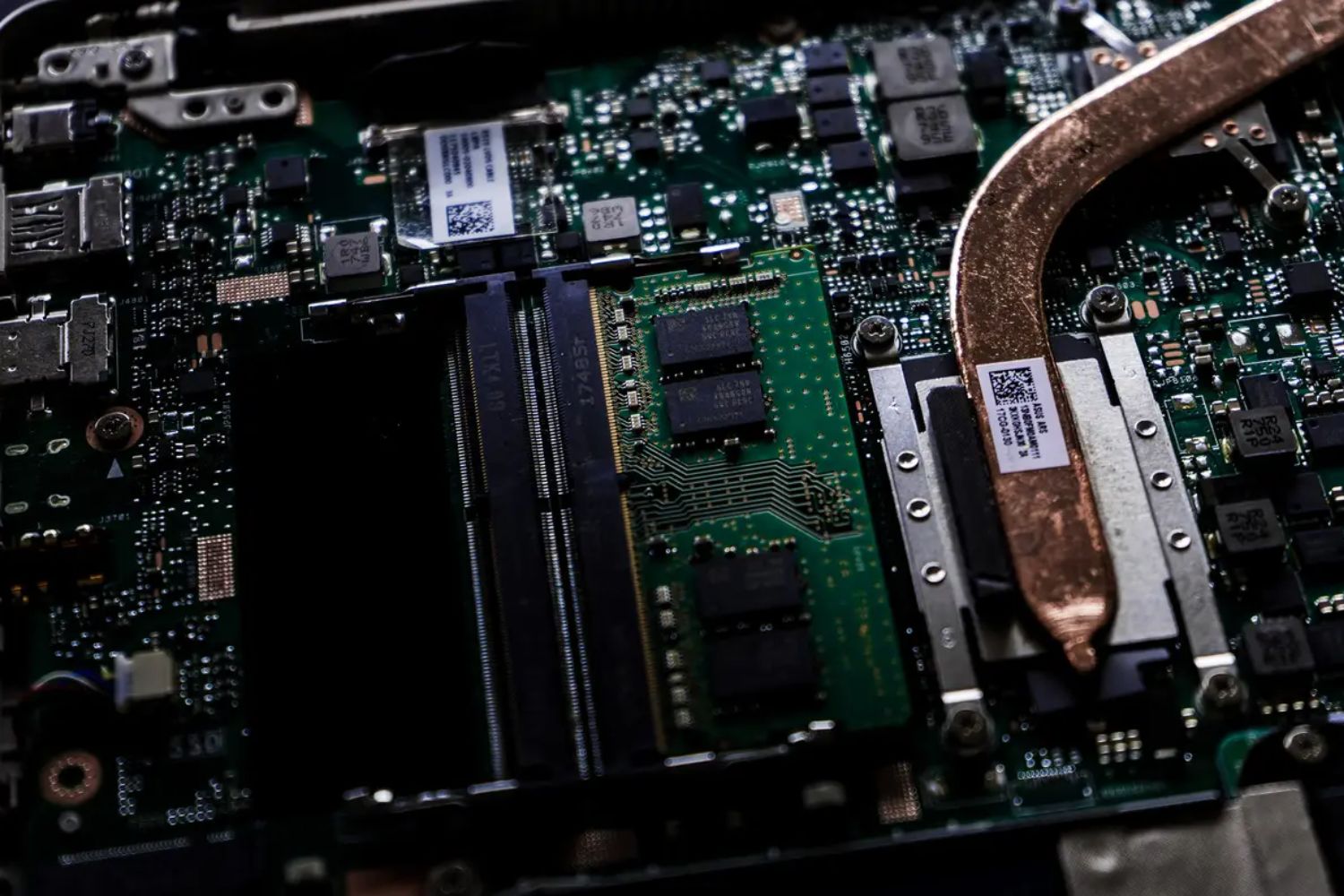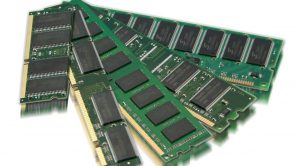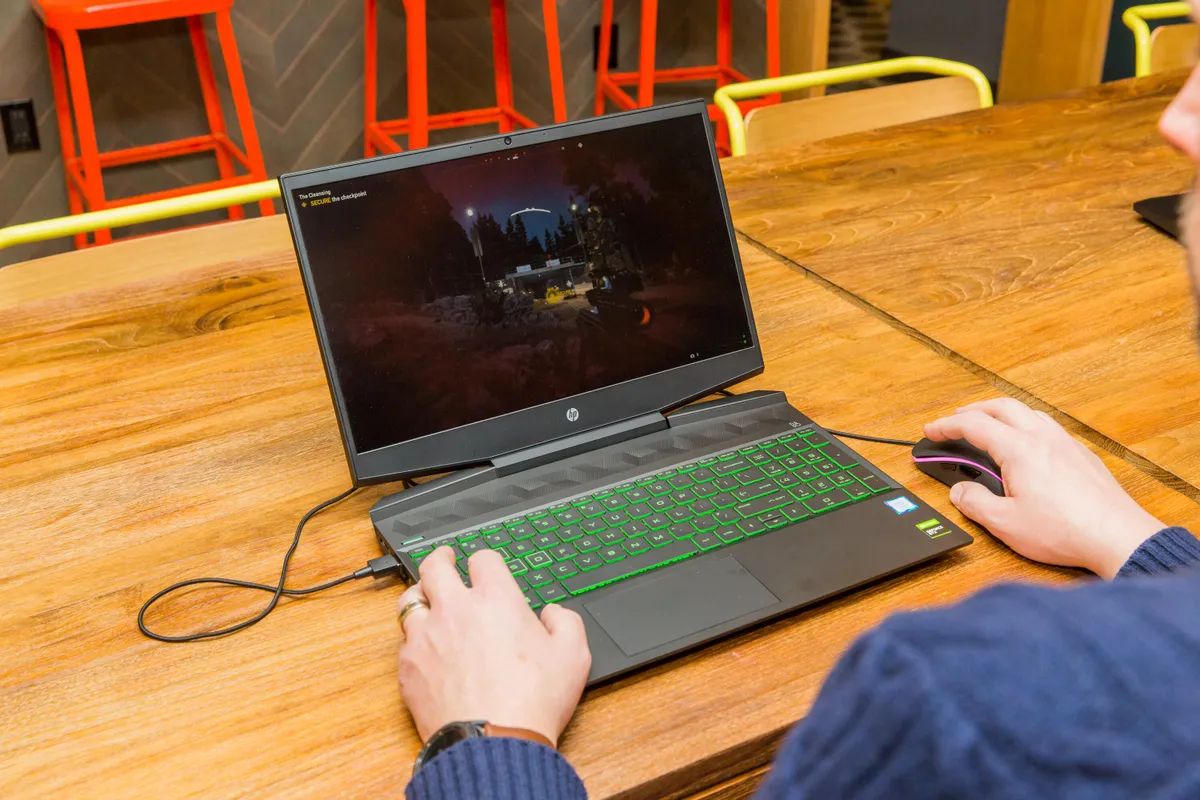Introduction
When it comes to gaming laptops, one of the most crucial factors that determine the overall performance and capability is the amount of RAM it has. RAM, which stands for Random Access Memory, plays a key role in determining how smoothly and efficiently your games will run. But how much RAM should a good gaming laptop have?
Choosing the right amount of RAM for a gaming laptop can be a daunting task, especially with the ever-evolving technology and the increasing demands of modern games. While there is no one-size-fits-all answer to this question, there are a few key factors that you should consider when deciding on the amount of RAM for your gaming laptop.
In this article, we will explore the various factors that contribute to determining the right amount of RAM for a gaming laptop. We will also discuss the importance of RAM in gaming and provide recommendations for different levels of gaming performance.
Before we delve into the specifics, let’s briefly explain what RAM is and why it is essential for gaming. RAM is a type of computer memory where data and instructions are temporarily stored for quick and easy access by the processor. Unlike the long-term storage provided by hard drives or solid-state drives, RAM offers fast and responsive data retrieval, resulting in smoother multitasking and faster game loading times.
Now that we understand the importance of RAM, let’s move on to the factors that you should consider when deciding on the right amount of RAM for your gaming laptop.
Factors to Consider when Choosing the Right Amount of RAM for a Gaming Laptop
When it comes to determining the ideal amount of RAM for your gaming laptop, several factors need to be taken into consideration. These factors will help you make an informed decision and ensure that your laptop can handle the demands of modern gaming. Here are the key factors to consider:
- Game Requirements: The specific games you plan to play will play a significant role in determining the amount of RAM you need. Some games, especially newer titles or those with high graphics requirements, may have recommended or minimum RAM requirements. Check the system requirements of the games you want to play and aim to meet or exceed the recommended RAM for optimal performance.
- Operating System: The operating system you are using also affects the amount of RAM you need. While Windows 10 typically requires a minimum of 8GB of RAM, having more RAM will ensure smoother multitasking and better performance overall, especially if you have other applications running in the background while gaming.
- Multiplayer and Streaming: If you frequently engage in multiplayer gaming or plan to stream your gameplay, additional RAM is beneficial. Streaming applications and multiplayer games can be resource-intensive, so having more RAM will help maintain smooth performance and reduce lag.
- Future-Proofing: When investing in a gaming laptop, it’s important to consider the future. Games are becoming more demanding every year, so having extra RAM can future-proof your laptop and allow you to tackle upcoming titles without worry. Aim for a higher amount of RAM if you want your gaming laptop to remain relevant for a few years.
- Budget: Of course, budget plays a role in determining the amount of RAM you can afford. While it’s tempting to prioritize other components like the processor or graphics card, compromising on RAM can lead to performance bottlenecks in gaming. Strike a balance and allocate a reasonable portion of your budget for RAM to ensure a well-rounded gaming experience.
Considering these factors will help you make an informed decision about the amount of RAM that is right for your gaming laptop. By meeting or exceeding the recommended RAM requirements of your games, considering your operating system’s needs, accounting for multiplayer and streaming, future-proofing your laptop, and budgeting wisely, you can ensure smooth and enjoyable gaming experiences for years to come.
What is RAM and Why is it Important for Gaming?
RAM, which stands for Random Access Memory, is a vital component of any computer system, including gaming laptops. It serves as a temporary storage location for data and instructions that the processor needs to access quickly. Unlike the long-term storage provided by hard drives or solid-state drives, RAM offers fast and responsive data retrieval, making it crucial for gaming performance.
RAM plays an essential role in gaming for several reasons:
- Game Loading Times: When you launch a game, it needs to load various assets such as textures, models, and audio files into memory for quick access. The more RAM you have, the more data the game can preload, resulting in significantly faster loading times and smoother gameplay.
- Game World and Environments: Modern games often feature vast open worlds and complex environments. These virtual landscapes require a significant amount of RAM to store and access the necessary data for smooth rendering. With ample RAM, you can enjoy expansive game worlds without experiencing delays or stutters.
- Game Assets and Textures: High-resolution textures and detailed game assets contribute to immersive and visually stunning gaming experiences. However, these assets consume a substantial amount of memory. Sufficient RAM allows the game to store and rapidly load these assets, resulting in sharp and detailed visuals without sacrificing performance.
- Multi-tasking and Background Applications: Gaming laptops are not solely used for gaming. Many users perform other tasks simultaneously, such as browsing the internet, streaming music, or running productivity applications. Having ample RAM allows for smooth multi-tasking and ensures that other applications running in the background do not impact gaming performance.
- Virtual Reality (VR) Gaming: Virtual reality gaming places additional demands on system resources. VR headsets require high frame rates and low latency to provide a seamless and immersive experience. Sufficient RAM is essential to prevent lag and maintain smooth performance in VR games.
Overall, RAM is vital for gaming because it enables faster loading times, smoother gameplay, detailed visuals, seamless multi-tasking, and optimal performance in virtual reality games. A gaming laptop with adequate RAM ensures that the system can handle the demands of modern games and deliver an immersive, enjoyable gaming experience.
Minimum RAM Requirements for Gaming
When it comes to gaming, meeting the minimum system requirements is essential to ensure that games run smoothly and without major performance issues. While the specific minimum RAM requirements can vary depending on the game, there are general guidelines that can help you determine the minimum amount of RAM you should have for gaming.
Typically, most modern games have a minimum RAM requirement of 8GB. This means that your gaming laptop should have at least 8GB of RAM to meet the minimum criteria. However, it’s important to note that this is a bare minimum requirement and may not provide the best gaming experience.
While 8GB may be sufficient for older or less demanding games, newer titles and those with more advanced graphics may require more RAM to perform optimally. Additionally, if you plan on multitasking while gaming or running resource-intensive applications in the background, you may want to consider having more than the minimum 8GB of RAM.
Having more RAM than the minimum requirements not only ensures smoother gameplay but also allows for better multitasking capabilities. It allows your system to handle the game’s memory requirements while also providing additional room for other necessary processes and applications to run efficiently.
Therefore, while 8GB may be the minimum RAM requirement for most games, it is recommended to have 16GB or higher for a more future-proof and optimal gaming experience. This will ensure that you can handle newer game releases and even engage in activities like streaming or content creation alongside gaming without encountering noticeable performance issues.
Taking the time to invest in a gaming laptop with the appropriate amount of RAM will provide you with a hassle-free gaming experience and mitigate any potential performance bottlenecks that could adversely affect your gameplay.
Recommended RAM for Entry-level Gaming
If you’re an entry-level gamer or someone who enjoys playing less demanding games, you may be wondering how much RAM is recommended for your gaming laptop. While the minimum requirements may suffice for some games, having a slightly higher amount of RAM can offer a smoother and more enjoyable gaming experience.
For entry-level gaming, it is generally recommended to have at least 8GB of RAM. This amount of RAM will provide a solid foundation for running most games without significant performance issues. It allows the game to load assets efficiently and ensures smooth gameplay even in less graphically demanding titles.
With 8GB of RAM, you can comfortably play games such as popular multiplayer titles, indie games, and older releases. However, if you plan to multitask while gaming or use additional software alongside your games, such as voice chat applications or web browsers, consider upgrading to 16GB of RAM.
Having 16GB of RAM offers more headroom for multitasking and ensures that your system can handle other processes without compromising gaming performance. It allows you to seamlessly switch between applications, stream your gameplay, or run background tasks without experiencing any noticeable slowdowns.
It’s worth mentioning that as gaming technology continues to advance, the recommended RAM for entry-level gaming may gradually increase over time. To ensure that your gaming laptop can handle future game releases and keep up with evolving technology, opting for 16GB of RAM can provide a more future-proof setup.
In summary, for entry-level gaming, 8GB of RAM is the minimum recommendation, while 16GB of RAM is highly recommended for a more optimal gaming experience and better multitasking capabilities. With the recommended amount of RAM, you can enjoy a smooth gaming experience in less demanding games and have the flexibility to engage in other activities simultaneously.
Recommended RAM for Mid-range Gaming
If you’re a mid-range gamer who enjoys playing modern and moderately demanding games, you’ll need a sufficient amount of RAM to ensure optimal performance. Mid-range gaming requires a balance between affordability and the ability to handle more resource-intensive games. With that in mind, here’s the recommended RAM for mid-range gaming.
For mid-range gaming, it is recommended to have at least 16GB of RAM. This amount of RAM provides a significant boost in performance compared to entry-level configurations. It allows for smoother gameplay, faster loading times, and the ability to multitask more efficiently while gaming.
With 16GB of RAM, you’ll be able to comfortably play most modern games without experiencing performance bottlenecks. It allows the game to load larger and more detailed game assets quickly, resulting in a visually immersive experience. Additionally, multitasking becomes smoother, as you can run background applications, such as voice chat software or streaming programs, without impacting gaming performance.
Furthermore, having 16GB of RAM future-proofs your gaming rig to some extent. As games become more demanding over time, having more RAM can help ensure that your system remains capable of running new releases without needing an immediate upgrade.
However, if you’re a mid-range gamer who likes to push the boundaries and play more graphically demanding titles or engage in content creation alongside gaming, you may want to consider upgrading to 32GB of RAM. This higher amount of RAM provides even more headroom for multitasking and ensures a smoother experience with intensive applications running simultaneously.
In summary, for mid-range gaming, it is recommended to have at least 16GB of RAM, providing a good balance between performance, multitasking capabilities, and future-proofing your gaming laptop. However, if you plan to engage in more resource-intensive tasks or want additional headroom for multitasking, upgrading to 32GB of RAM is a viable option for an even more optimal gaming experience.
Recommended RAM for High-end Gaming
For avid gamers who want to experience the latest and most demanding games at their highest settings, high-end gaming laptops with ample RAM are essential. High-end gaming requires a robust system capable of delivering exceptional performance and handling resource-intensive tasks. Here’s the recommended RAM for high-end gaming.
When it comes to high-end gaming, it is recommended to have a minimum of 16GB of RAM. This amount of RAM provides a solid foundation for running modern games at their maximum potential. It ensures smooth gameplay, fast asset loading, and seamless multitasking without any noticeable lag or performance bottlenecks.
With 16GB of RAM, you can comfortably play the vast majority of high-end games, including those with advanced graphics, expansive open worlds, and complex simulations. It allows for quick data access and retrieval, resulting in stunning visuals and immersive gameplay experiences.
However, if you’re a high-end gamer who wants to squeeze out every ounce of performance or engage in content creation alongside gaming, consider upgrading to 32GB or even 64GB of RAM. With higher amounts of RAM, you’ll have more multitasking headroom, faster file loading times, and smoother performance when running demanding applications or rendering complex scenes.
Having 32GB or 64GB of RAM is particularly beneficial if you plan to stream your gameplay, edit videos, or work with resource-intensive software simultaneously. It helps ensure that your gaming laptop can handle the additional demands without sacrificing gaming performance or experiencing slowdowns.
Keep in mind that while having a higher amount of RAM can enhance performance, it’s crucial to consider other aspects of your gaming laptop, such as the processor and graphics card, to achieve the best overall gaming experience.
In summary, for high-end gaming, 16GB of RAM is the minimum recommended amount to ensure smooth gameplay and seamless multitasking. However, if you want to maximize your gaming performance or engage in demanding tasks like content creation, upgrading to 32GB or even 64GB of RAM can provide additional headroom and performance benefits.
Overclocking and the Importance of High RAM
When it comes to maximizing the performance of your gaming laptop, overclocking can be a game-changer. Overclocking involves pushing the limits of your hardware components, such as the processor and graphics card, to achieve higher clock speeds and better overall performance. In this process, the importance of high RAM cannot be overlooked.
High RAM plays a crucial role in overclocking because it allows for smoother and more stable performance when pushing the limits of your hardware. When you overclock your CPU and GPU, they require faster data access and more memory resources to handle the increased processing demands. Having high RAM capacity and speed helps ensure that the increased data flow can be effectively managed.
During overclocking, the processor and graphics card generate heat due to their increased workload. High RAM capacity can mitigate potential issues related to heat buildup. With more RAM available, it allows for better heat dissipation, as the system can spread out and buffer the data more efficiently. This leads to a cooler system overall, reducing the risk of thermal throttling and potential instability.
Furthermore, high RAM capacity aids in multitasking during gaming sessions. It allows you to run multiple resource-intensive applications simultaneously, such as streaming software, voice chat programs, or even running virtual machines, without impacting gaming performance. This becomes particularly important when you’re engaged in activities like live streaming or content creation, where multitasking is essential.
Another aspect where high RAM is valuable for overclocking is the potential for higher system stability. Overclocking increases the strain on your hardware, which can sometimes lead to instability or crashes. By having ample RAM, you provide additional headroom for stable performance, reducing the chances of encountering stability issues during intensive gaming sessions or demanding tasks.
It’s important to note that when overclocking, it’s not only the amount of RAM that matters, but also the RAM speed. Higher RAM frequencies allow for faster data transfer and better overall system performance. Therefore, investing in high-speed RAM modules, along with a sufficient amount of RAM, can significantly enhance the stability and performance gains achieved through overclocking.
In summary, high RAM capacity and speed are of great importance when it comes to overclocking your gaming laptop. It ensures smoother performance, better multitasking capabilities, improved heat dissipation, and increased system stability. With high RAM, you can push the limits of your hardware to achieve better gaming performance and an overall enhanced gaming experience.
Conclusion
Choosing the right amount of RAM for your gaming laptop is crucial to ensure smooth gameplay, faster loading times, and seamless multitasking. While the exact amount of RAM needed may vary depending on factors such as game requirements, budget, and future-proofing, there are general recommendations to consider.
For entry-level gaming, 8GB of RAM is the minimum requirement, but upgrading to 16GB provides a more optimal gaming experience, especially for multitasking. Mid-range gaming enthusiasts should aim for at least 16GB of RAM, while considering 32GB for more resource-intensive tasks and future-proofing. High-end gamers should start with 16GB, but 32GB or even 64GB is recommended for maximum performance and multitasking capabilities.
In addition to RAM capacity, the speed of the RAM modules should also be considered for optimal performance. High-speed RAM helps improve data transfer rates and overall system responsiveness.
It’s important to balance your budget and gaming needs when choosing RAM for your gaming laptop. Investing in sufficient RAM can provide a smooth gaming experience, handle multitasking demands, and ensure compatibility with future game releases.
Finally, keep in mind that RAM is not the only factor impacting gaming performance. Other components, such as the processor and graphics card, also play significant roles. Therefore, it’s crucial to consider the overall system configuration and ensure a well-rounded setup that allows for optimal gaming performance.
By carefully considering the amount of RAM that suits your gaming needs and budget, you can build a gaming laptop that offers an immersive, smooth, and enjoyable gaming experience. So, take the time to choose the right amount of RAM for your gaming laptop and elevate your gaming adventures to new heights.

























